- Home
- Hammond Innes
Levkas Man (Mystery)
Levkas Man (Mystery) Read online
This book made available by the Internet Archive.
FOR
Brenda, Sarah and Theo
AND IN MEMORY OF
Leonard
He carved the red deer and the bull Upon the smooth cave rock . . .
And from the dead white eyes of them
The wind springs up anew,
It blows upon the trembling heart,
And bull and deer renew
Their flitting life in the dim past
When that dead Hunter drew.
W. J. TURNER
PART ONE
The House in Amsterdam
I
It was Sunday, the street empty, the canal black under a louring sky. My footsteps sounded solitary on the cobbles and the years rolled back to childhood, every detail clear-etched on the retina of memory—the house barges moored by the bridge, the flowers set out in pots on the pavement, the newsvendor on the corner. And then the house itself, shabbier than when I had seen it last. That had been two years ago when my ship had put into Rotterdam and some strange urge—a desire for reconciliation—had brought me here. The front door and all the windows had been freshly painted then, green like the linden trees. It had been summer; now it was March and the trees were bare.
My footsteps slowed as I neared the door, a reluctance, a sense of dread almost. Last time I had had a shipboard world behind me, a job and the companionship of men I knew. Now it was different. I could feel myself beginning to tremble as I felt once again the pull of the old man's personality. There
had been no reconciliation, no renewal of our strange relationship. He had been away on one of his periodic bouts of travelling, rootling for old bones. And now, when I came seeking a temporary refuge ... a fit of trembling reached down the muscles of my arm and into my hands. I paused, hesitating, summoning up the courage to face him again.
A small wind from the north blew cold down the gut of the canal between the old houses. The narrow gable, four storeys above me, had the date on it—1694—just below the jutting beam hooked for a pulley to hoist furniture in at the windows. I shivered, wondering why the hell I had come. The trembling reached into the pit of my stomach. It was nerves and quite uncontrollable. It had been like that in moments of stress since I was ten. I knew it would pass. It always did. But still I hesitated, unwilling to commit myself and step again into that lonely, embittered world from which I had escaped eight years ago.
A car drove past me, its tyres drumming on the cobbles. A girl was driving it and the quick glance of her eyes broke the spell. I went up to the door and rang the bell, remembered that it had never worked and slammed the knocker twice. The sound of it was loud enough to wake the street, but nothing stirred within the house. I stood back then, looking up at the facade; the windows were all shut, and as I tried the knocker once again, a sense almost of relief flooded through me at the thought that he might be away and I would have the place to myself.
A gust of wind blew down the canal and a branch swayed above my head to the dry rattle of twigs. A leaf left over from the autumn fell at my feet, withered and browned by frost. I thought of all the times I had walked the streets with him. He had suffered from insomnia and sometimes he had woken me in the middle of the night to go out with him into the sleeping city; walking the streets and the banks of the canals had been a sort of sedative, a means of dulling the restless energy that drove his mind. In summer he had always worn sandals and an open-necked shirt. In winter his wiry body had been bulked
out by an old goat-skin jacket, and always he had gone bareheaded, the stooped, white-maned figure with its shambling walk a familiar sight in Amsterdam. But as I had grown older he had been away more often.
The ring of keys was in my hand, still burnished bright from the years it had jostled in my pocket. Had he missed them, I wondered, remembering the loneliness, my sudden decision to go. The sun glimmered momentarily, the clouds black as ink. It looked like rain and the house stood silent, waiting. I pulled myself together then, found the key I wanted and inserted it into the Yale-type lock. The door slid open and I hesitated, the stillness of the house yawning before me. Then I picked up the suitcase I had bought the night I had abandoned the car in London and went into the house.
He was away. I could sense it the moment the door clicked shut behind me, the silence of the old house closing in. I thought of all the times I had been frightened here, frightened by his extraordinary magnetism, his unpredictable nature.
I hesitated, listening to the stillness that had closed about me. The wind sighed in the eaves and a board moved. As in all these old Amsterdam houses, the stairs were narrow and almost vertical, like a ladder leading to a loft, and the stair carpet showed thin and worn in the pale glimmer from the fanlight.
I forced myself to think why I was here, and gradually the trembling ceased, and my throat relaxed. I wasn't a child any longer and the house was empty, the old man no more than a ghostly presence. I had what I wanted—a refuge in which to lie low and time to sort myself out. That was all that mattered. I humped my suitcase up the stairs and went into the study on the first floor.
It was just as I remembered it, nothing changed; the big desk with the Anglepoise lamp, the heavy swivel chair padded in black leather, the bookshelves ranged along the wall opposite the windows, even the sombre velvet curtains and the marble clock on the mantelpiece. Though it was almost mid-
day—a quarter to twelve, in fact—the room was shadowed and dark. The sun had gone, rain gusted against the windows. I switched the light on, put my suitcase down, and took off my raincoat. What I needed was money, Dutch money. And then a round of the dockside taverns to see what I could pick up.
I went over to the desk, where a pile of letters and journals lay as though awaiting his return. I tried the drawers, but with no success. They were crammed with old bills, bank statements, cheque stubs, correspondence dating back for years; in one I found my old school reports under a litter of broken pipes, birds' feathers and old tobacco tins. And in the bottom right-hand drawer, in an old cigar box full of letters I had written him from school, I came across a short note from my mother, written from Kenya, announcing my birth and asking him to be my godfather. Pinned to it was my birth certificate and the adoption papers that changed my name from Scott to Van der Voort. In another drawer was some correspondence about a mortgage, with the deed attached, and a bundle of letters relating to his mother's estate in South Africa, faded now and held together by a thick rubber band. And below these were the details of the sale of the boat. He had only had it just over a year and the sale had been within a few months of my leaving him.
As I straightened up, the clock on the mantelpiece struck twelve. Its beautiful, clear tinkling chime was so much a part of my memory of the room that I took it for granted. My eye was caught by the top letter on the pile of correspondence. It was from a Dr. Gilmore in Cambridge, something about carbon-14 and a dating of 35-30,0006.?. Bones, of course, and the journals were all scientific. There were unpaid bills, too, and right at the bottom a note from somebody, who signed himself Alec Cartwright, confirming that he would be arriving in Belgrade with the Land-Rover on February 26.
So the old man had been gone at least three weeks.
I turned to the bureau then. That was where I'd found the cash I had needed as a kid. It stood in the corner opposite the door, a tall piece with glass-fronted shelves for books and a
The House in Amsterdam *j
curved let-down flap, the walnut surface of it gleaming with the rich patina of the years. The glass case held the same collection of antique-bound books on the top shelf, the rest of it full of old bones and bits of worked flint—artefacts, he had called them. The word Mousterian came back to me, for the bones
and the primitive flint axe-heads had had a certain fascination for me when I was about twelve years old. The picture my young mind had conjured up was of wild, hairy men emerging from caves to attack each other with blunt-bladed axes. I had even produced axes of my own, made with flint found at the bottom of a derelict barge, and he had shown me how to work them and how to bind the "blade" to the wooden haft with leather thongs. But it was only a passing phase and I had lost interest after he had given me a hiding for gashing another boy's head open.
The contents of the top three shelves were exactly as I had last seen them, the skull in the same place, in the centre of the third shelf, a lower jaw and a few pieces of bone, the rest built up of a smooth, ivory-like composition. The bottom shelf was empty except for some small fragments of bone in the right-hand corner; there were some teeth amongst them that looked as though they were human teeth. It was on this shelf that he had kept the books he valued most—a first-edition Darwin and several old-fashioned tomes, some in French, some in German. Breuil—that name came back to me—the Abbe Breuil, and Chardin. They were gone now, all except the worn leather-covered Bible. A slip of paper caught my eye and I opened the glass front and took it out. It was gummed paper and on it he had written: skull-cap fragments and 2 teeth, Kyzyl Kum No. 5.
Seeing his writing again after all these years, I stood there for a moment, the faded slip in my hand, remembering in detail the night I had surprised him sitting at the bureau with a pen in his hand and a leather-covered book in front of him. I had come down in my pyjamas, startled out of my sleep by a cry like that of a wounded animal. He was just sitting there, his head bowed in his hand and the book open in front of him.
Something, the draught from the open door perhaps, had made him turn. I had never forgotten the strange look in his eyes, the shock my presence seemed to give him. For a moment he had been unable to speak, his whole body shaking as though the effort of control was almost beyond him.
And then, suddenly, he was himself again and he had quietly ordered me back to bed. But that was the last time I ever dared enter his study at night, and even in the daytime I always knocked first. And though it had happened at least fifteen years ago, the terror of that moment when he had turned and discovered me in the doorway, the blank look in his eyes, was so vivid that my hands were trembling again as I found the key that unlocked the flap below the glass-cased shelves.
But there was nothing in the satinwood drawers, only sheaves of paper covered with notes in his minute, spidery writing, and when I slid back the writing top to reveal the secret cavity below, there was nothing there but letters; the leather-covered book he had always kept there—his Journal, a diary, or whatever it was—had gone. The letters were in two bundles, each tied with string, the larger from somebody in Cambridge who signed himself Adrian. But it was the other bundle that caught and held my attention, for the writing was the same as in the letter I had found announcing my birth. They were signed Ruth, which was my mother's name, and they were love letters, each beginning My Darling or Darling Peter.
I sat there for a long time, staring at that bundle of letters —not reading them through, not wishing to pry, but disturbed, almost appalled, by the thought that they had once loved each other. I had never understood why, following the death of my parents, I had been sent half across the world to live with a man whose whole life was devoted to dusty digs and anthropology. He had never told me and I had never dared to ask. Now at last I knew, and the knowledge shocked me in a way I did not quite understand—as though a door, previously barred to me, had suddenly swung partly open.
I could only just remember her—tall and serious, full of
The House in Amsterdam g
warmth and a dark-eyed vitality, at moments very emotional. My father had been the complete opposite, a broad, sunburned man with a moustache and a voice that carried through the bush like the roar of a lion. It was the country I remembered mostly, and those last moments when the Mau-Mau had come to the farm.
I put the letters back unread, slid the writing top over the cavity and unlocked the cupboard under the flap. But all I found there was an album of snapshots, myself mostly at various ages between ten and nineteen, though the first few pages were taken up with faded pictures of an old stone farmhouse, of himself as a boy with his parents—Edwardian figures against a background of overhanging cliffs and a winding river. A cutting from a French newspaper had been pasted in and a letter signed "H. Breuil." His boyhood I remembered had been spent in France. Also in the cupboard were some models of boats I had made and a chess set; he had tried to teach me chess once. At the back were old copies of the American Journal of Anthropology, but nothing of value, and I got to my feet, looking round for something I could raise some money on.
The two Greek statues on the mantelpiece were no longer there and the clock was too heavy. The wind outside had dropped and in the stillness I could hear it ticking. It was an eight-day clock and he had always wound it first thing Sunday morning. The sound of it, so faint, yet so persistent, held me rooted to the spot for a moment. Somebody had been in this room, somebody who knew his routine.
The key was where he had always kept it, in the old clay tobacco jar to the right of the mantelpiece, and when I fitted it into one of the holes in the clock's white face, it only turned twice before the spring was fully wound. Whoever it was had been in the study within the last two days. I wiped my fingers across the clock's marble top, down the whole length of the mantelpiece, but no dust showed. The bureau was the same, the desk, too. I couldn't understand it. He had never had a housekeeper or even a woman in to clean. He had always
lo Levkas Man
looked after the place himself, and we had made our own beds, got our own meals—a bachelor existence.
In the tiny dining room opposite the study, everything was clean. But the bits of silver, the salvers and the rather ornate candlesticks, were gone, put away perhaps for safekeeping. I went upstairs. In the spare room I found blankets and an eiderdown neatly stacked at the foot of the bed, and in the drawer of the dressing table there were hairpins and a dusting of powder. The room had a faintly alien smell, quite different from the test of the house.
I crossed the landing to my own room. The bed was completely stripped and nothing had been altered since my abrupt departure. I stood for a moment in the open door, a world of memories flooding back. My first chart, stolen from a vessel in the docks, had been studied at that table by the window. The window was closed now, but on summer nights ... it looked out on to the backs of houses, each window, as the lights went up, revealing glimpses of other boxed-in worlds, and of that girl; my eyes switched involuntarily to the second-floor window of the old grey house opposite, where she had undressed so slowly through the hot nights of that last summer.
I closed the door quietly, shutting out the tawdry memories of adolescence, and was standing at the head of the stairs, considering what to do next, when I heard the click of the front door closing, and then the creak of the stairboards, the sound of somebody climbing, slowly, hesitantly.
I thought at first it was the old man and my body froze. But then a woman's voice called out, "Who is it? Who's there?"
I shrank back into the shadows and the house was suddenly still.
"Is anybody there?" Her voice sounded scared. I thought I could hear her breathing. The footsteps started to climb again.
There was no point in staying where I was. The light was on in the study and she would see my suitcase. I went down the stairs and I could feel her waiting, breathless, on the land-
ing. We met outside the study door and she said, "Who are you? What are you doing here?" Her voice was pitched high, barely controlled. I could almost smell her fear as she stood very still, peering up at me in the half-light that filtered through from the fanlight at the bottom of the stairs. Then she gave a little gasp. "You're Paul Van der Voort, aren't you?"
"Yes."
Her face was no more than a pale oval, her head, outlined in
silhouette, was bare.
"What are you doing here? How did you get in? I saw the light . . ." And then: "You had your keys, of course." And she added, the whole timbre of her voice changed, "There's nothing for you here, no money—nothing that would interest you." The nervousness was gone, cold anger in its place: "And if it's his Journal you're after, you won't find it. There's nothing for you here—nothing at all. They shouldn't have sent you."
"What the hell are you talking about?" I stepped past her and thrust open the study door. "Come in here where we can talk." I wanted to see who she was, what she looked like.
"No. I'll go now." The nervousness was back in her voice. "I'd no idea it was you. I thought . . ." But by then I had her by the arm and had pushed her through into the light. She was younger than I had expected, a plain-looking girl with large eyes and wet, straw-coloured hair cut like a boy's. She wore a plastic mac that dripped water.
"Now then," I said, closing the study door. "Let's start with your name."
She hesitated, then said, "Sonia Winters."
"English?"
"Half-English."
"How did you recognize me?"
"The photograph in his bedroom. Another in your old room."
"You don't look like a housekeeper."
She shook her head.
"Then why have you got the keys to the house?"
She didn't say anything, but just stood there, staring at me with hostile eyes, her breath coming quickly as though she had been running.
I was certain she wasn't a relative. I don't think he had any relatives—either he had alienated them or else they were all dead. And then I remembered the pile of opened letters on the desk. "You were acting as his secretary, is that it?"
"I did some typing for him. I live just across the canal. And then when he became ill I looked after him."

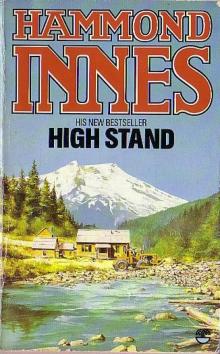 High Stand
High Stand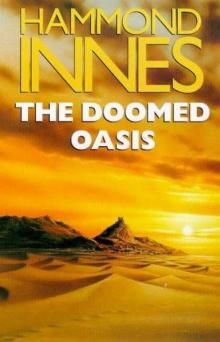 The Doomed Oasis
The Doomed Oasis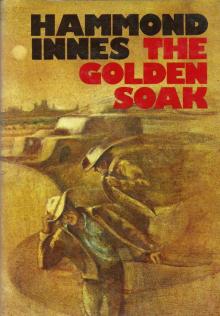 Golden Soak
Golden Soak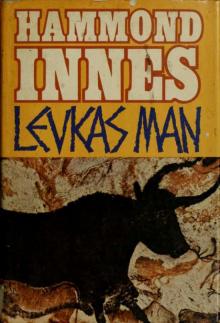 Levkas Man (Mystery)
Levkas Man (Mystery)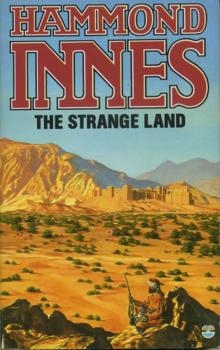 The Strange Land
The Strange Land Dead and Alive
Dead and Alive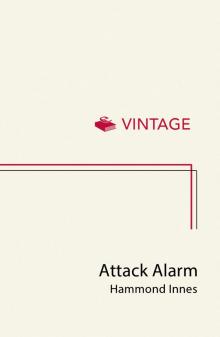 Attack Alarm
Attack Alarm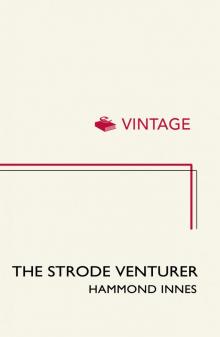 The Strode Venturer
The Strode Venturer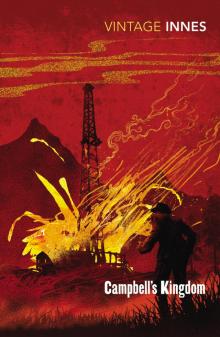 Campbell's Kingdom
Campbell's Kingdom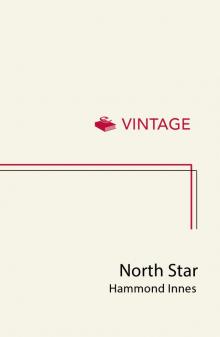 North Star
North Star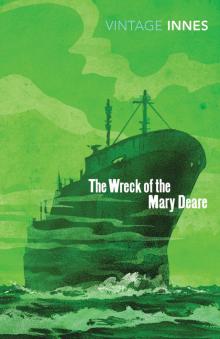 The Wreck of the Mary Deare
The Wreck of the Mary Deare The Lonely Skier
The Lonely Skier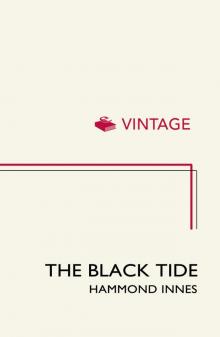 The Black Tide
The Black Tide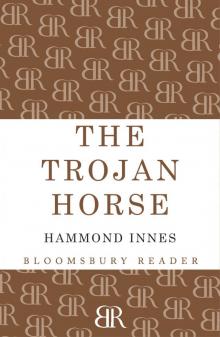 The Trojan Horse
The Trojan Horse Medusa
Medusa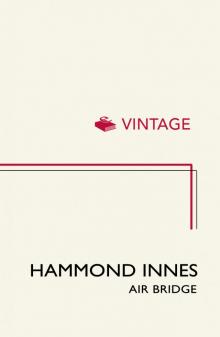 Air Bridge
Air Bridge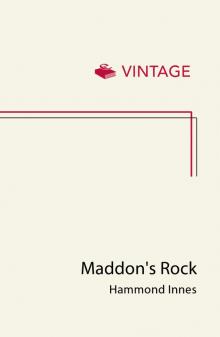 Maddon's Rock
Maddon's Rock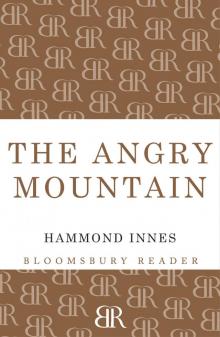 The Angry Mountain
The Angry Mountain Wreckers Must Breathe
Wreckers Must Breathe Solomons Seal
Solomons Seal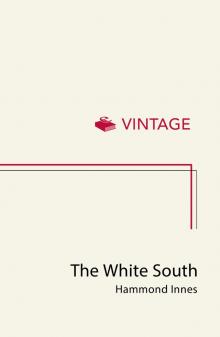 The White South
The White South